I absolutely adore light card games, and lucky for me they come in an endless variety and a wide range of player counts. From the classic bidding game No Thanks, to the press your luck game PUSH, the 7 player Birds of a Feather, and the card shedding L.L.A.M.A., I love them all. They’re usually my go to game when I’m with a group of people I don’t know well. It can be hard to convince a new group to play a board game, with their complex rulesets. But it’s much easier to convince 3 or 4 people to play a light card game whose rules can be taught in a minute or two.
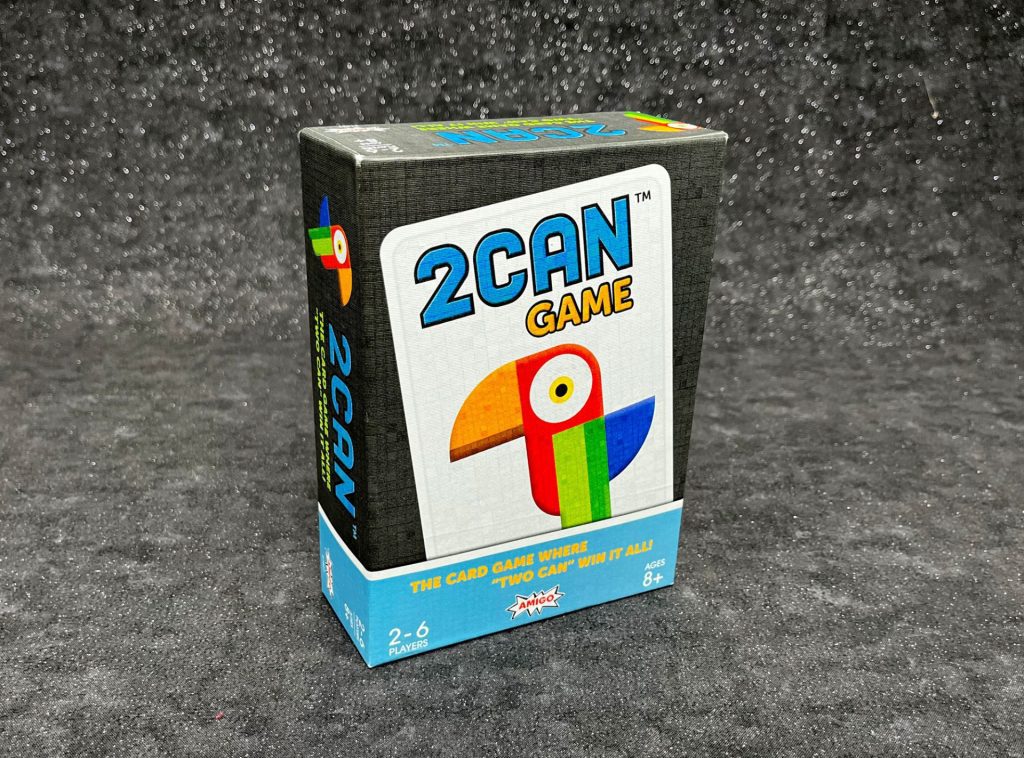
When I came across 2Can, a card game that supported up to 6 players I was intrigued, especially when I saw the simple geometric artwork and the simple gameplay.
So let’s talk about 2Can.
2Can Overview
In 2Can, players are trying to have the lowest score over a number of rounds (the rules say 5, but we usually do 3 to keep it breezy). On your turn, you’re going to draw a card, then decide if you want to replace a card in your play area with the new card, or to discard the newly drawn card. Play goes around until one player flips over their 8th card. Every player gets 1 more turn and then scores are tallied. Play your desired number of rounds, and the player with the lowest score wins.
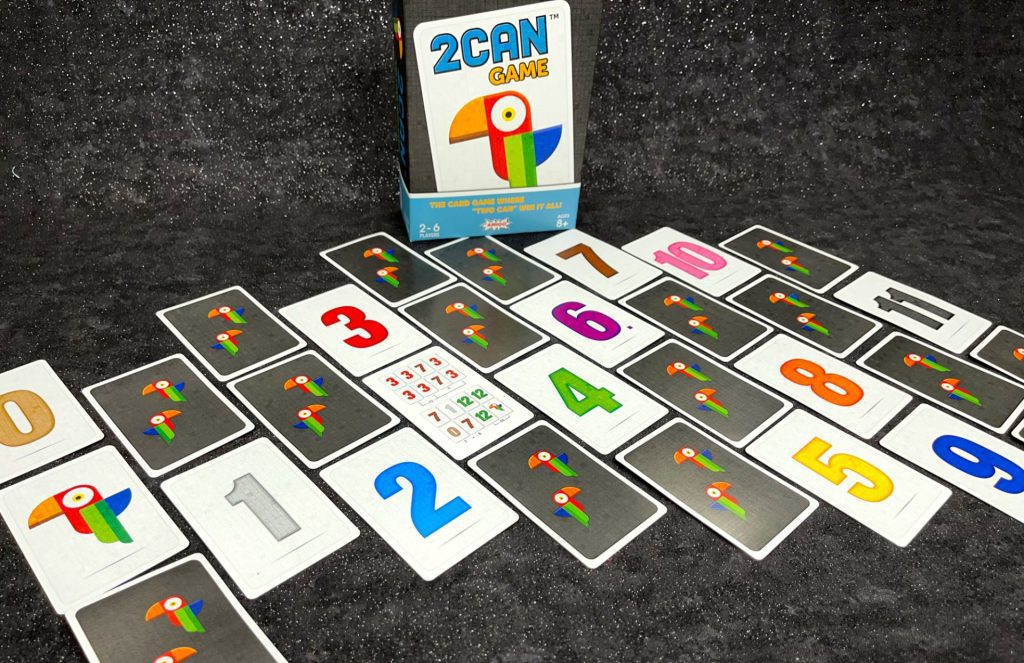
Now this was obviously a gross oversimplification, so let’s dig into exactly what’s going on in 2Can.
2Can consists of 104 number cards (8 each of numbers 0 – 12) and 4 2Can cards (more on them later). Each player starts off with a 4×2 grid of facedown cards, with 2 cards of their choice flipped face up. The remainder of the deck is placed face down in the middle of the table, and a single card is turned face up. At the end of a round, every face up card is going to be worth its face value with a few exceptions, which I’ll cover in a moment.
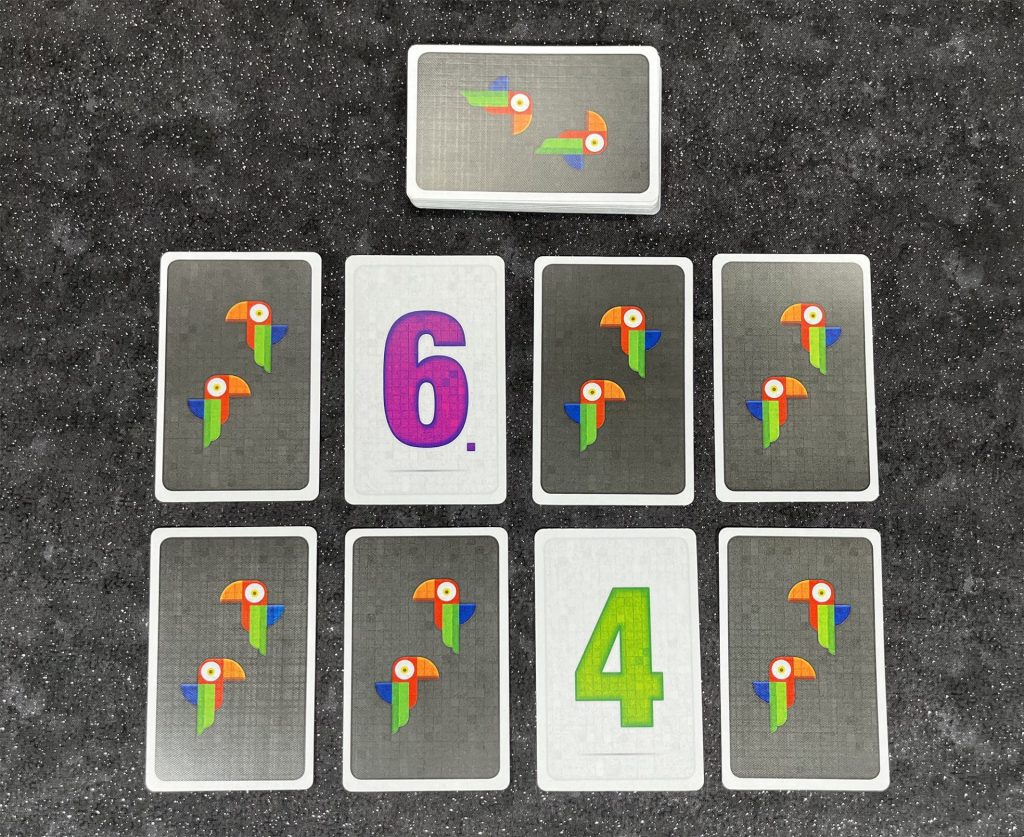
On your turn you’ll either draw the faceup card from the discard pile, or the top card from the draw pile. Then you must choose to either:
- Replace one of the cards in your place area (face up or face down) with the new card, discarding the replaced card.
- Discard the newly drawn card.
Why, pray tell, are you doing this? Remember how I said that face up cards are worth face value? If you can position 2 of the same number in a column then that pair of cards is now valued at 0. If you can get 4 of the same card (in 2 columns) then you actually get to subtract 10 points, 3 columns is worth -15 points, and 4 columns are worth (you guessed it) -20 points.
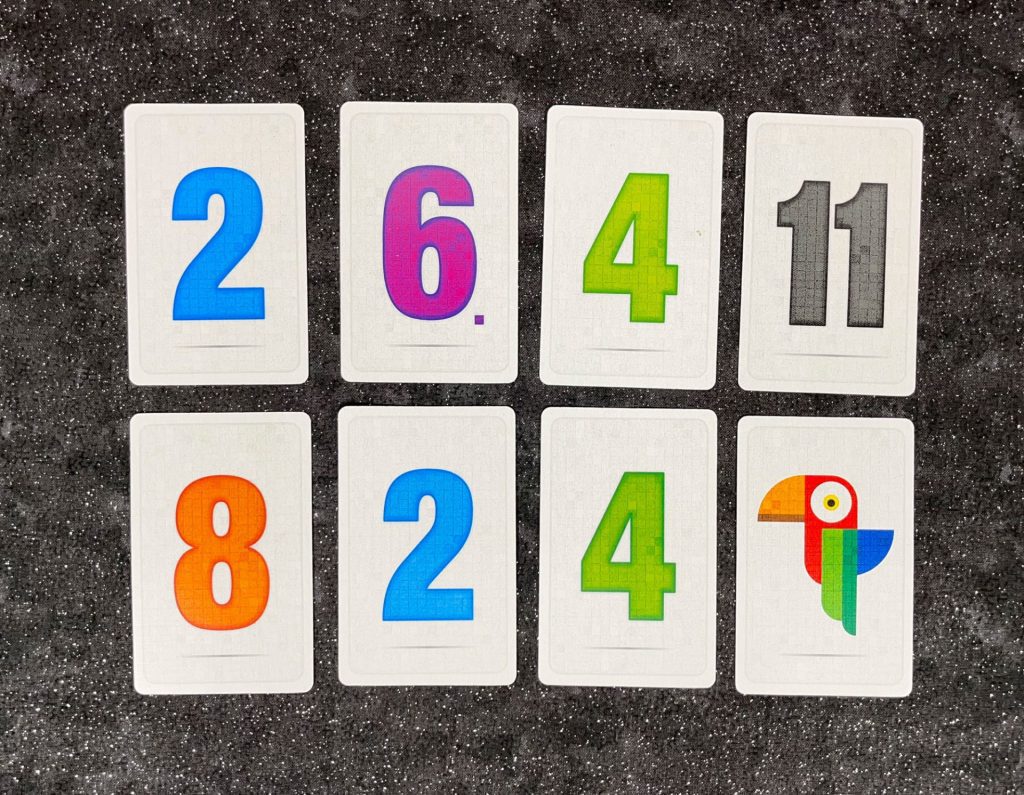
Once a card has been placed into your play area it can’t be rearranged with the exception of the wild 2Can cards (of which there are 4 in the deck). If you draw a 2Can then you place it into your play area as normal. However, on future turns if you draw a card that fits into the 2Can’s place better, you can move the 2Can to a new location in your play area. Because the 2Can card is wild, it automatically matches whichever card appears in the same column, resulting in an automatic 0 score for that part of your play area…powerful indeed!
Tally up your scores and the person with the lowest overall score is the winner!
Custom versions of standard card games?
If you’ve ever played the card game Golf (also known as Polish Polka, Turtle, and Crazy Nines), you might be saying “wait a second, this sounds really familiar”, and you’d be right. 2Can is an almost mirror image of that game, but it’s been streamlined.
In the original Golf card game players have but 6 cards in their grid. Columns of the same card score zero, but other cards have specific extra values. 2Can makes it easier by removing extraneous scoring (but adding in the -10, -15, and -20 bonuses).
2Can, can you?
Maybe there’s just something about holding playing cards in your hand; the smooth feel of the glossy paper against your fingertips, fanning out your hand so that you can just see the numbers in the top left corner, or perhaps it’s the shuffling—it’s gotta be the shuffling right? But no matter the cause, I’m hooked on card games, and 2Can is my newest attraction.
One of my favorite aspects of light games is finding the hidden strategies that can make a difference. In this game you need to pay close attention to what the player on your left is doing. You can’t impact anyone else, but you can make sure you look at their play area so you don’t accidentally give them a card that benefits them. Of course that means the player to your right is also scoping your area.
Another strategy is to try and focus on higher numbers: 10, 11, and 12. It’s a calculated risk, but because they’re worth so many points the player to your right might want to offload those cards as soon as possible, which can give you the ability to pick up their discards. And even though they’re watching your play area, if they draw a 12 and can’t use it, they’re unlikely to keep it just to spite you.
And lastly there is a bit of strategy to which cards you flip over in your tableau. Even though they’re all face down, not all of them are equal. Because you score by matching like cards in a column, sometimes it’s best to open up a column completely early on, and then trade away cards as you find them. Another equally valid strategy is to leave a single card flipped over in a column. You don’t know what that face down card is, but it’s only a 1 in 12 chance to be a match so you might be better off just leaving it unknown and replacing it with a definite later in the game.
The first time I played 2Can I was sitting at the First Look table at PAX Unplugged 2021. This was high on my list of games to try, and so when I saw an unattended copy I swooped in and started reading the rules. A few minutes later a group of 4 other players asked if they could join me. And so we learned 2Can together, and played an entire game, laughing and having a great time. And as I was putting the game away another group approached and asked if I could teach them. And so I played 2Can for close to an hour and a half, with complete strangers, and had a blast. And if that isn’t what gaming is about, then I don’t know what is. So whether you pick up 2Can or play Golf with an existing deck, find some friends and have fun.


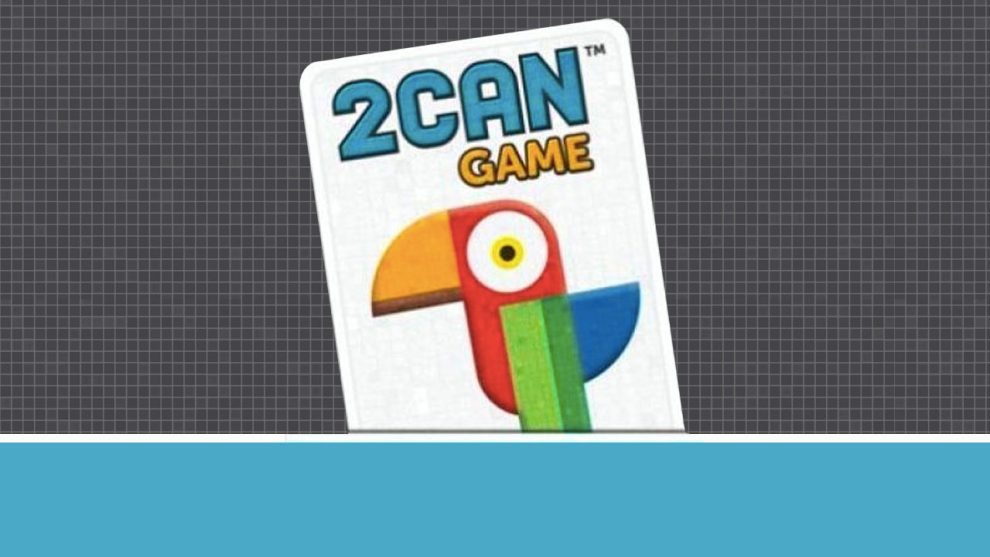

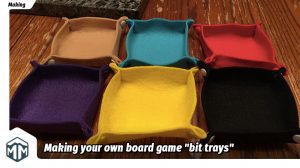


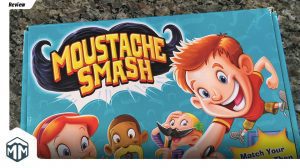




Add Comment